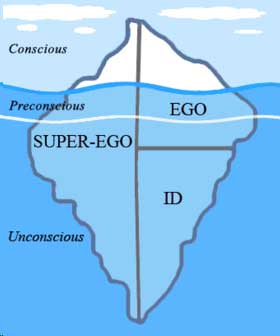Now, the VOA Learning English program Words and Their Stories!
Each week, we tell about and explain sayings in American English.
Today is it different types of psychobabble.
Psychobabble is a fairly new word in the English language. For about 40 years, people have been using psychobabble to describe the language of popular psychotherapy.
Psychotherapists are specialists in treating mental or emotional disorders. They talk with patients about their problems instead of using medicine or drugs.

Psychobabble can be used in areas other than the world of psychotherapy. Often these words find their way into everyday language.
Sigmund Freud is said to be the father of psychoanalysis. He opened up new ways of thinking about the mind. Freud and his work on unconscious, suppressed desires also led to several new expressions.
Among these is the saying "a Freudian slip." A Freudian slip is something people say accidentally that shows their true feelings. We also call this a slip of the tongue.
Freud explored the feelings that people keep buried deep inside themselves. They fail to recognize they are keeping their feelings hidden. Those feelings are bottled up inside the individual, Freud said. And sometimes these bottled up feelings come out in uncontrolled ways.
Here is an example. In 2004, Condoleezza Rice served as National Security Advisor to the president of the United States, George W. Bush. She was unmarried at the time and there were reports that she spent much of her time with the president and his wife Laura.
At a dinner party one night, Rice was talking with a group of people. She reportedly said, "As I was telling my husb—as I was telling President Bush ..." Some reporters wrote that Rice's Freudian slip might have shown how she really felt about Bush.
Sigmund Freud also defined parts of the human mind. In Freud's thinking, a mind is divided into three parts.
The ego is the part of the mind that senses and reacts to changes in the real world. The superego is the part that relates to ideas about what is right and wrong and to feelings of guilt. The id is the part of our unconscious minds that relates to one's basic needs and desires.
Of these three parts, it is the ego that is used in common expressions. If someone is said to be on an ego trip, they are only thinking of themselves. We also use this expression as a verb, saying that someone is ego tripping.
To stroke someone's ego is to praise them in order to get what you want. For example, if your supervisor is difficult to work with, just stroke his ego. Tell him he has the best ideas and that you are learning a lot from him!
If this boss is egocentric, all those nice comments just might work. Egocentrics are people who care too much for themselves and not enough about others. Egomania is the state of being egocentric. You could say an egomaniac lives in the state of egomania.
However, an alter ego is the exact opposite of an ordinary personality. In literature, one of the most famous examples of an alter ego appears in the book "The Strange Case of Dr. Jekyll and Mr. Hyde" by Robert Louis Stevenson.
This story became so famous that the saying "Jekyll and Hyde" now means a person who is different in moral character from one situation to the next.
For example, you could say, "She has a real Jekyll and Hyde personality. One minute, she's nice and quiet. The next she is shouting at people and insulting them."
Other personality types have made it out of the doctor's office and into American English. Take a Type A personality, for example. A Type A is said to be aggressive and very competitive.
Researchers started using this expression in the 1950s when they explored the connection between Type A personalities, stress and heart disease. In the 1970s, the term Type A found its way into everyday language.
Type As are often described as overachievers, goal-oriented and driven. Such individuals have a hard time waiting in lines, taking it easy and getting away from work. Their main concern is their career. This may sound bad. But Type A people are actually highly effective in the workplace.
And perhaps people who are a little Type A are also good at learning English.
I'm Anna Matteo.












